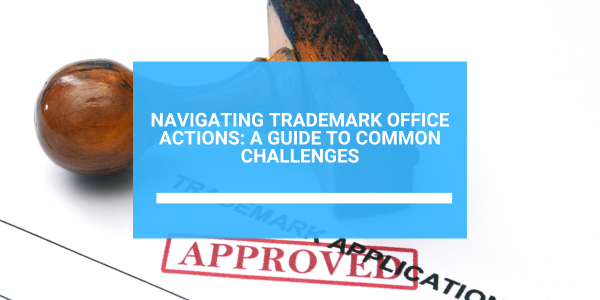Many people search “how to set up an LLC” online, thinking that it is something that is simple to do. They may have a small business and someone told them they should be protected. They perform a little research and determine that an LLC is the right entity for them. (I won’t get into the detail of why it is important to speak with a professional about entity choice, but trust me it is). Once they make the determination to set up an LLC, they go ahead and do it themselves. See, in all honesty, most of the state filings to set up an LLC are very simple and take less than 20-30 minutes to complete. But that is the smallest piece to an LLC.
How to Set Up an LLC – What you need to know.
On top of your state filings (articles or a certificate of organization), there are quite a few other documents one needs to have to ensure the LLC provides adequate protection. Just filing your state paperwork to create the entity doesn’t cut it. Yes, in theory, you have a limited liability company. But without the other pieces, it is like a house of cards. It can crumble at any time. And it will.
Problem 1 – Poor or No Operating Agreement
For example, a small business owner that formed their LLC online without an attorney got sued. Not just the business, but the owner as an individual as well. The owner thought that the LLC will protect him from the claim brought against him as an individual. When he submitted the claim to his insurance carrier, the carrier asked to see the operating agreement. The owner, feeling good, sent the carrier his operating agreement. This was a document that he downloaded off some website thinking that he was covered. Sadly, the insurance company denied coverage of the individual claim. This denial cost this person over $10,000 in legal fees to defend the individual claim.
The reason the claim was denied: the operating agreement was missing key language needed for an insurance policy for the business to cover claims against an owner. Unfortunately, this business owner, like many others out there, was pennywise and pound foolish. The owner had spoken to a few attorneys on how to set up an LLC and was quoted around $800-$1,000 to do so. Because he didn’t want to spend that amount of money for something he felt and was told, he could do himself, he decided to play lawyer. That attempt to save $1,000 led to a $10,000+ loss. All because he did not have the expertise to know what he needed.
Problem 2 – Lack of Proper Financial Advice
Another problem I have seen with people setting up an LLC without the help of a qualified attorney is that they don’t get the advice they need. There are certain things an LLC owner must do to ensure the legal protection shield remains intact. When I meet with a client to hand over their new created entity, I spend a decent amount of time outlining the compliance items they need to have in place. Owning an LLC is not as set it and forget it. There are ongoing obligations to ensure adequate protection. From creating a wall between personal and business finances to having an organizational and annual meeting, these are just a few of the things one must do.
Let’s take the finances for example. Comingling finances is one of the biggest reasons a court will “pierce the corporate veil” and allow a plaintiff to get the assets of an individual owner of an LLC. One transaction can do it. One inadvertent transaction. But you need to understand how the money needs to flow in and out of an LLC to make sure that you are putting yourself in the best position. This is why working with a skilled attorney to set up your LLC is crucial. They will be able to provide you the advice you need when it comes to finances.
Problem 3 – Lack of Documentation
Another common misconception people have that set their LLC up themselves is there is no requirement for annual maintenance. They believe that their articles of organization are all they need. Unfortunately, they are greatly mistaken. Banks, future partners/investors, landlords, and even the IRS will request organizational and annual meeting minutes to ensure the organization is not a sham entity.
We have talked about the importance of an operating agreement, but let’s now discuss the ongoing documentation an LLC should have. Because the LLC needs to be treated as an entity separate from you the owner, certain decisions and acts of the organization should be documented. This process shows that you are maintaining the entity and respecting the separation you must have from it. This documentation includes:
- Meeting minutes, which should be done at least annually if not quarterly
- Resolutions authorizing certain transaction in accordance with your operating agreement
- Any ongoing state or local business filings an LLC is required to make in the jurisdiction in which it is located
Beware of Doing it Yourself
As you can see, an LLC is not just a set it and forget it entity. When searching how to set up an LLC, you won’t find a lot of this information out there. A lot of the do-it-yourself websites want you to feel that it is easy to set-up and you can do it without a lawyer. Unfortunately, that is not the case and doing so is an extremely risky move for a business owner. This article is not meant to frighten or scare you into using an attorney. I am aware that a lot of you out there will not. I want to merely educate you on the risks involved with the improper set up of an LLC. Despite “how to set up an LLC” being a topic frequently written about, that doesn’t mean it is something you should do yourself.
But if you decide to do so after learning how to set up an LLC, I still want to help. I have created a LLC compliance checklist that is available for free download. Now understand that the checklist is merely educational in nature and in no way establishes an attorney-client relationship. You should always seek the advice of your own counsel. But if you would like to download the checklist, just click here.
Cozza Law Group Business Law Blog
©2024 Cozza Law Group PLLC, All Rights Reserved.
Privacy Policy



